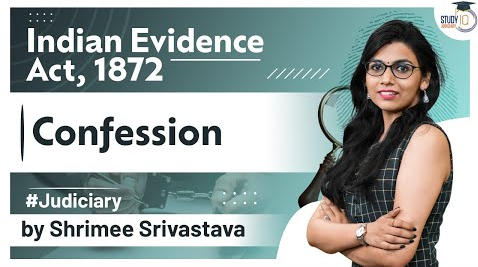Table of Contents
Confession
- The term ‘confession’ is nowhere defined or expressed in the Indian Evidence Act.
- Section 17 expressly provides that any statement whether oral or in the form of documentary which put forward for the consideration of any conclusion to the fact in issue or to the relevant facts.
- The statements may infer any reasoning for concluding or suggesting that he is guilty of a crime.
- We may also define the confession in other words that the admission by the accused in the criminal proceedings is a confession.
- The word ‘Admission’ expressed in the Evidence Act means “When any person voluntarily acknowledges the existence of any facts in issue or facts”
Type of confession
- Formal Confession (Judicial Confession)
- Informal Confession (Extra judicial Confession)
- Retracted Confession
When Confession is irrelevant.
- Section 24 of Indian Evidence Act provides that a confession made by a person who is accused of some offence is irrelevant if such confession comes out of any inducement, threat or promise and such instances have proceeded from a person in authority like police, magistrate, court etc., the other condition of this section is that inducement, threat or promise should be in reference to charge of any offence and all such inducements, threat or promise should give benefit of temporal nature.
- Section 25 provides that “No statements made to a Police Officer shall be considered as a confession for the purpose of proving that confession against that person who is accused to the case”.
- Section 26 prohibits the judicial bodies from proving the guilt of accused by his confession which is made to police in police custody.
- Section 26 imposes a partial ban on provisions stated in Section 25 that confession made to the police officer in police custody may be admissible if the confession recorded in the immediate presence of a magistrate.
Download| Free PDF






















 WhatsApp
WhatsApp